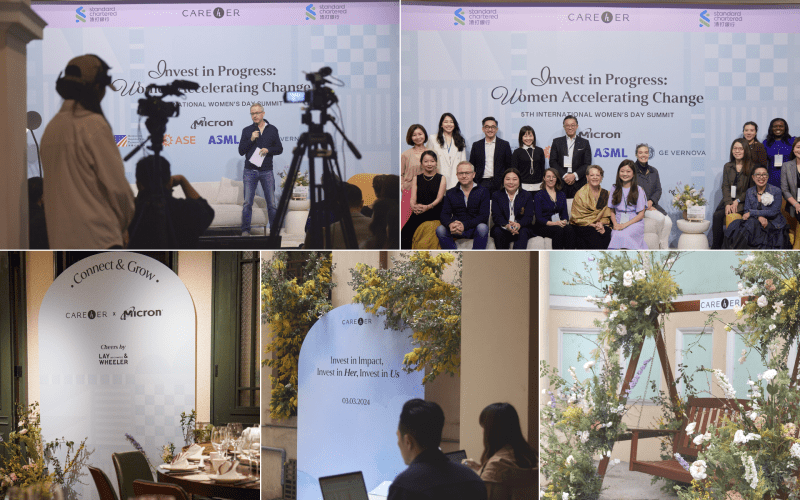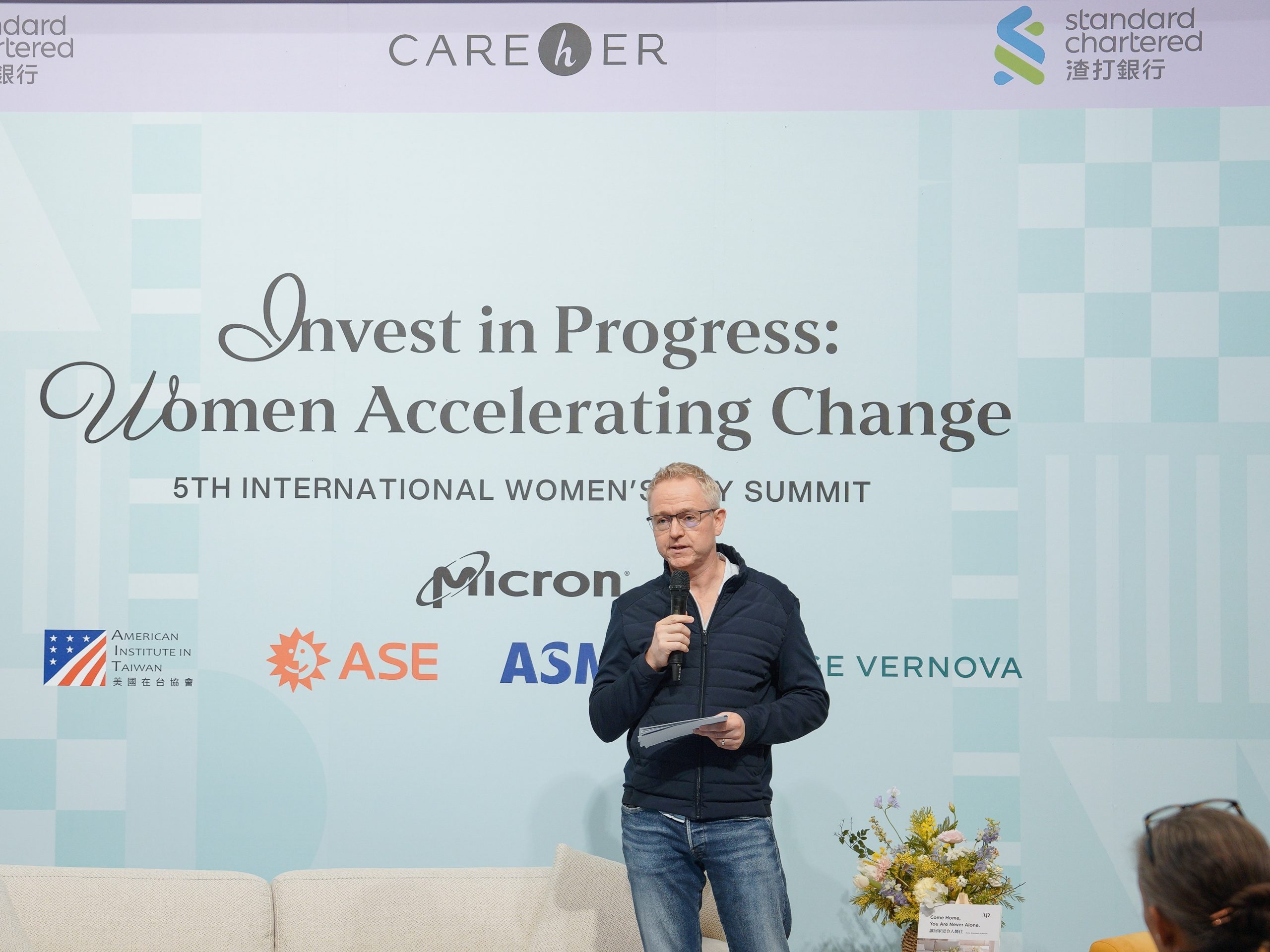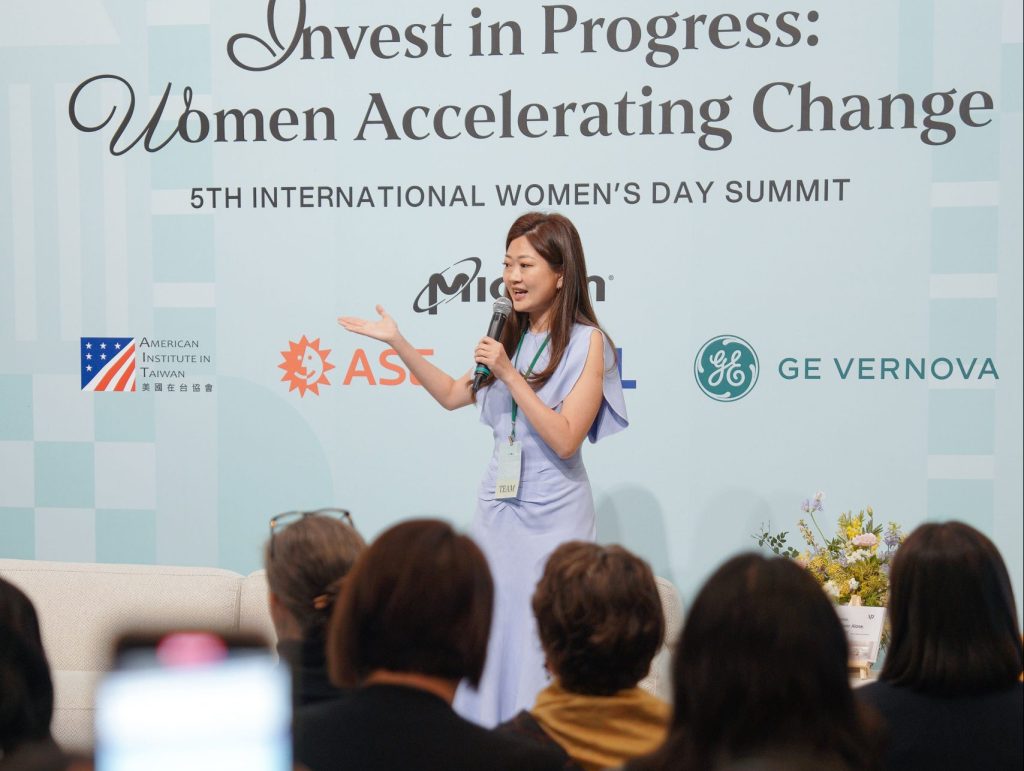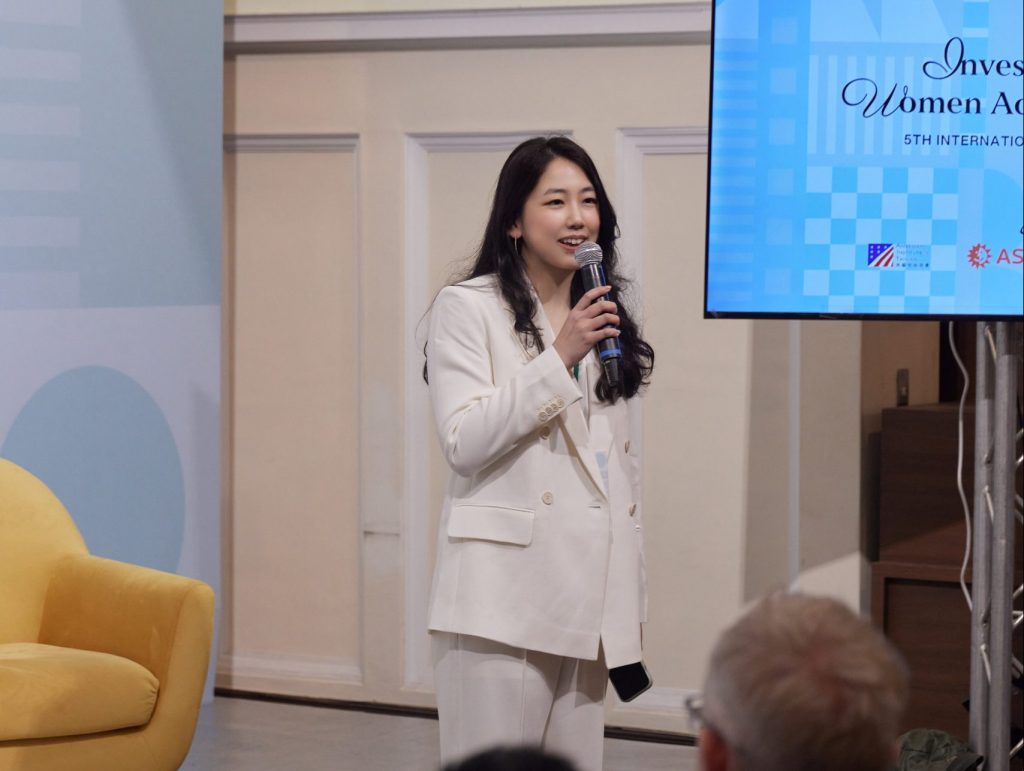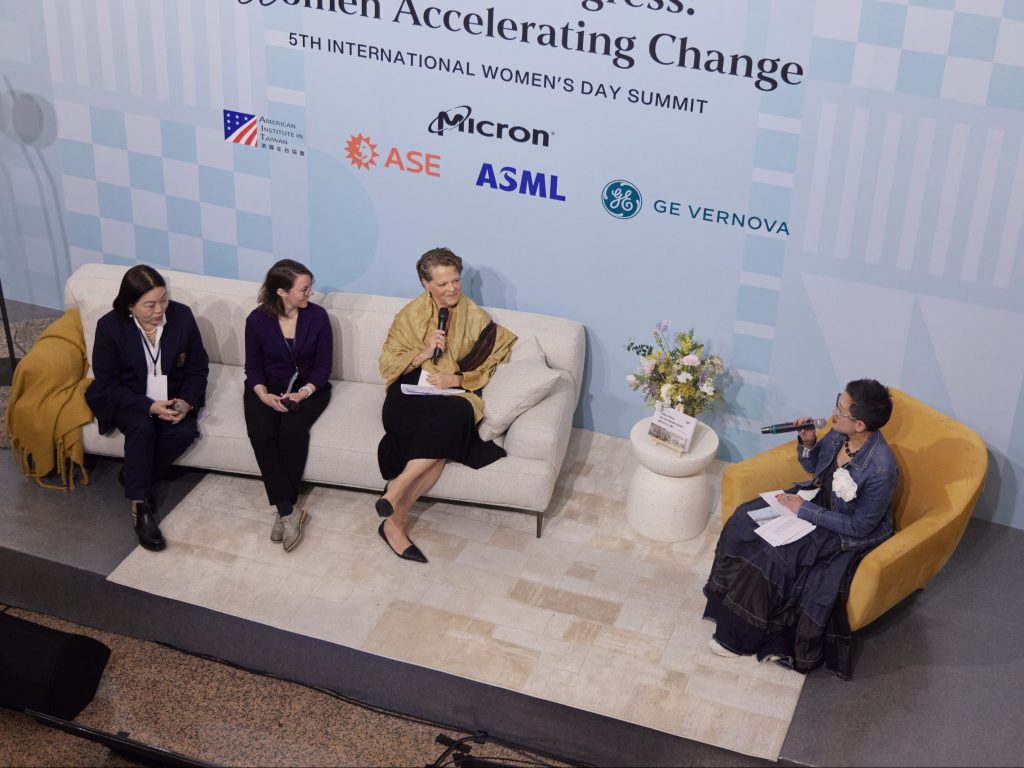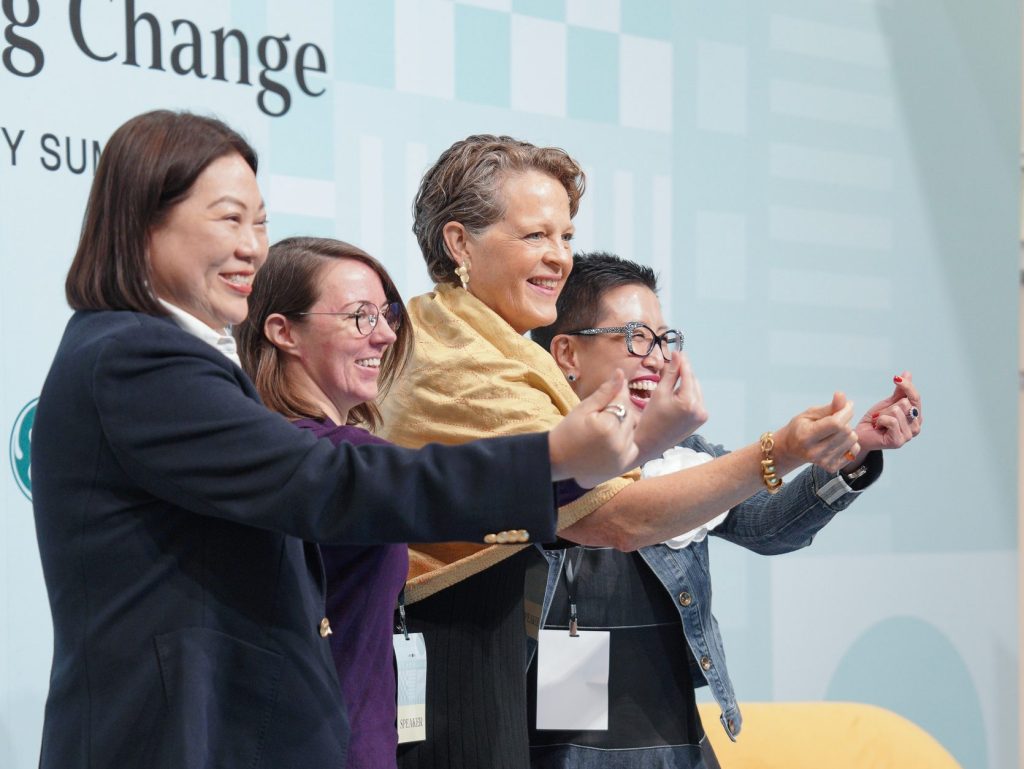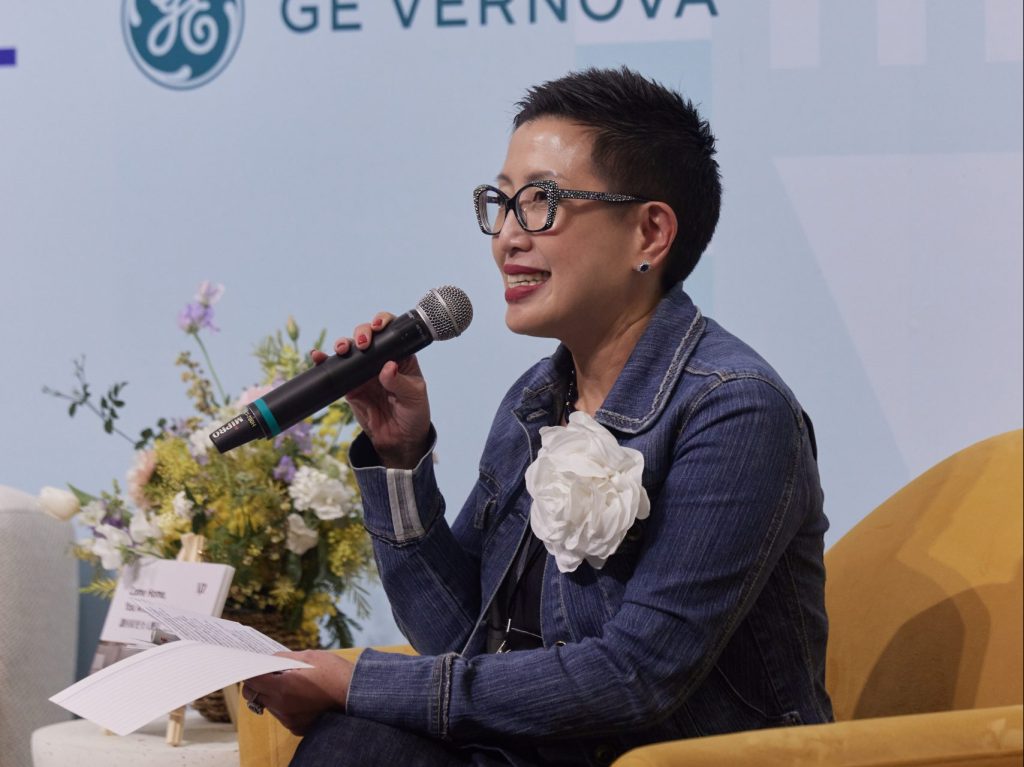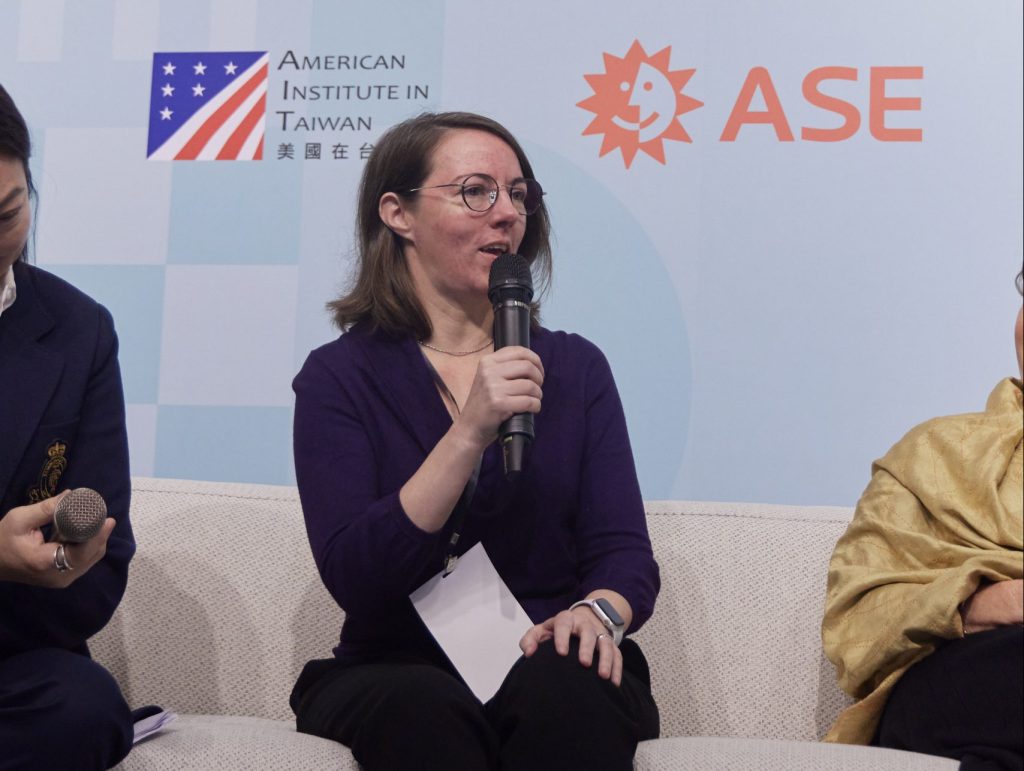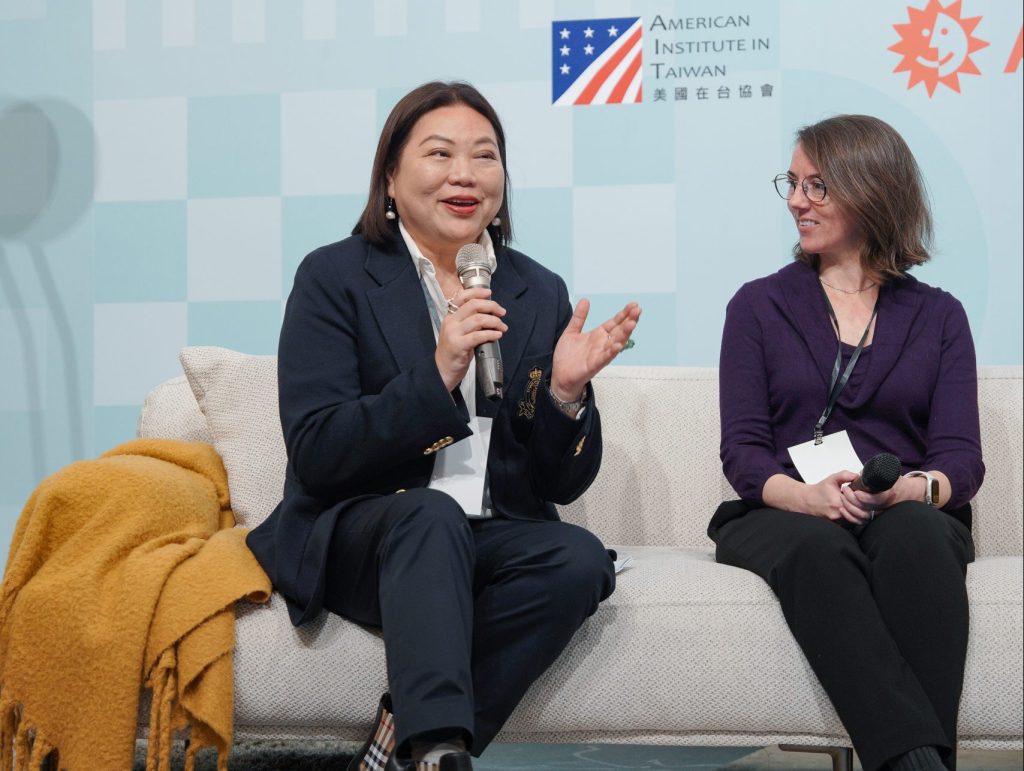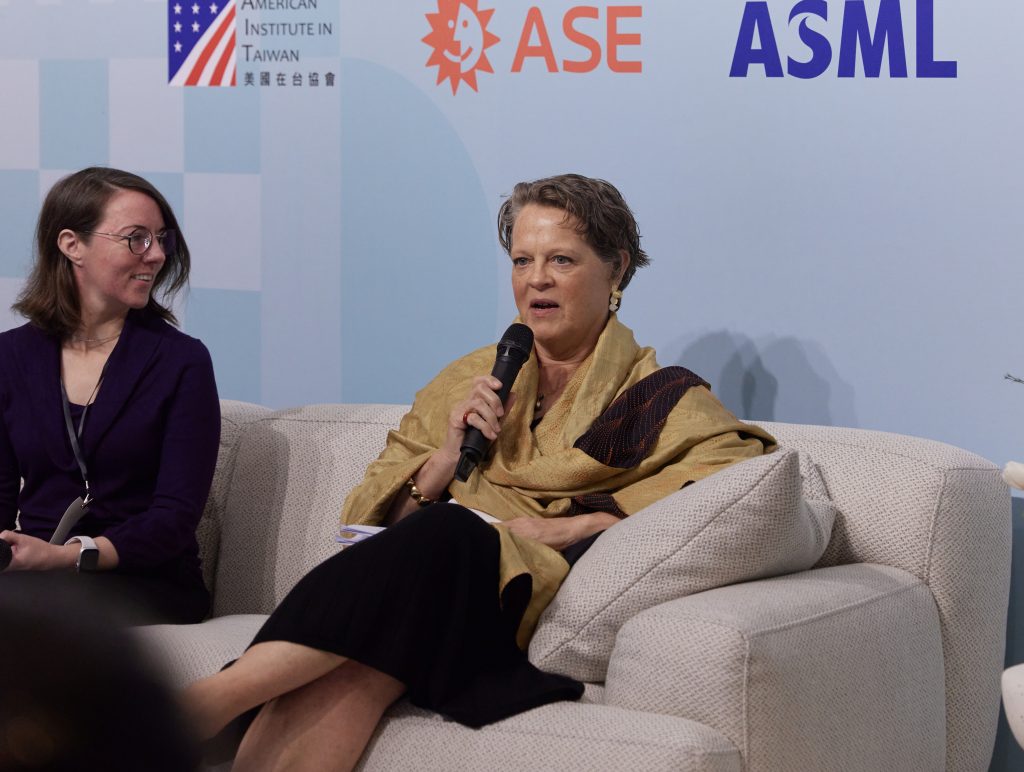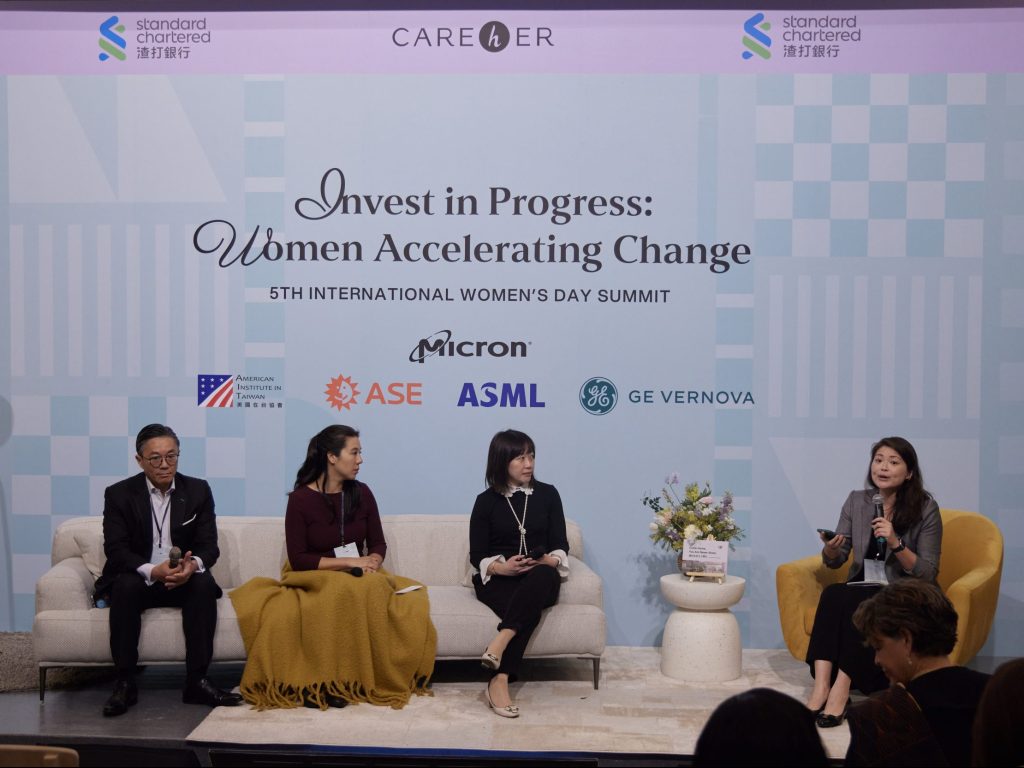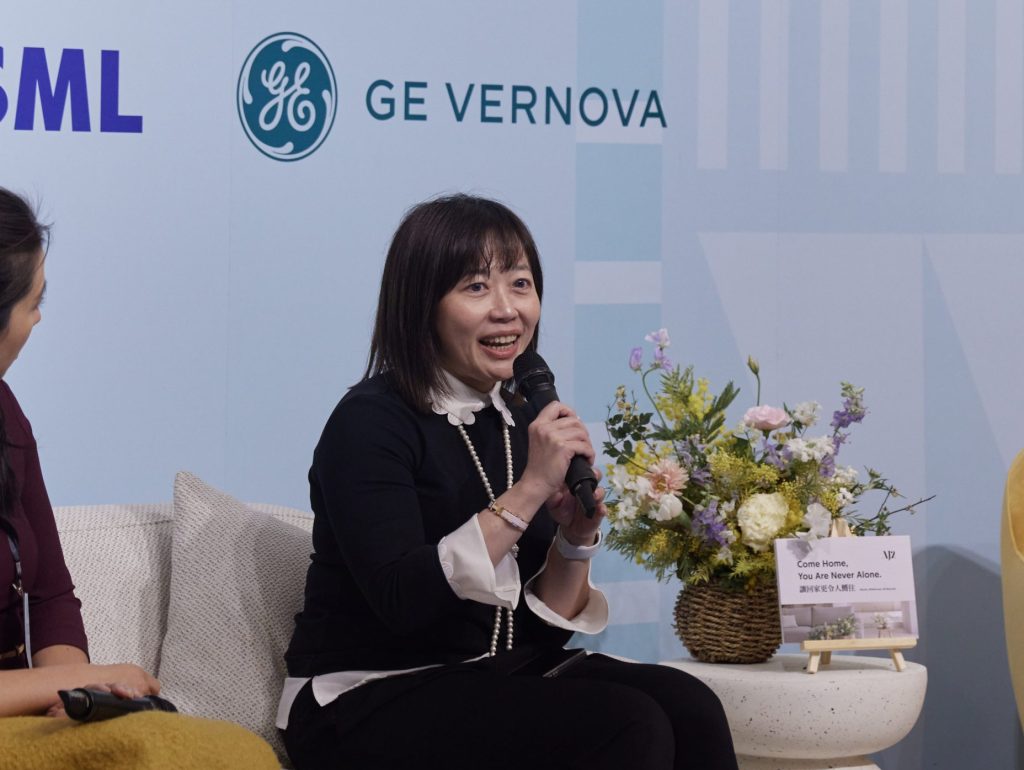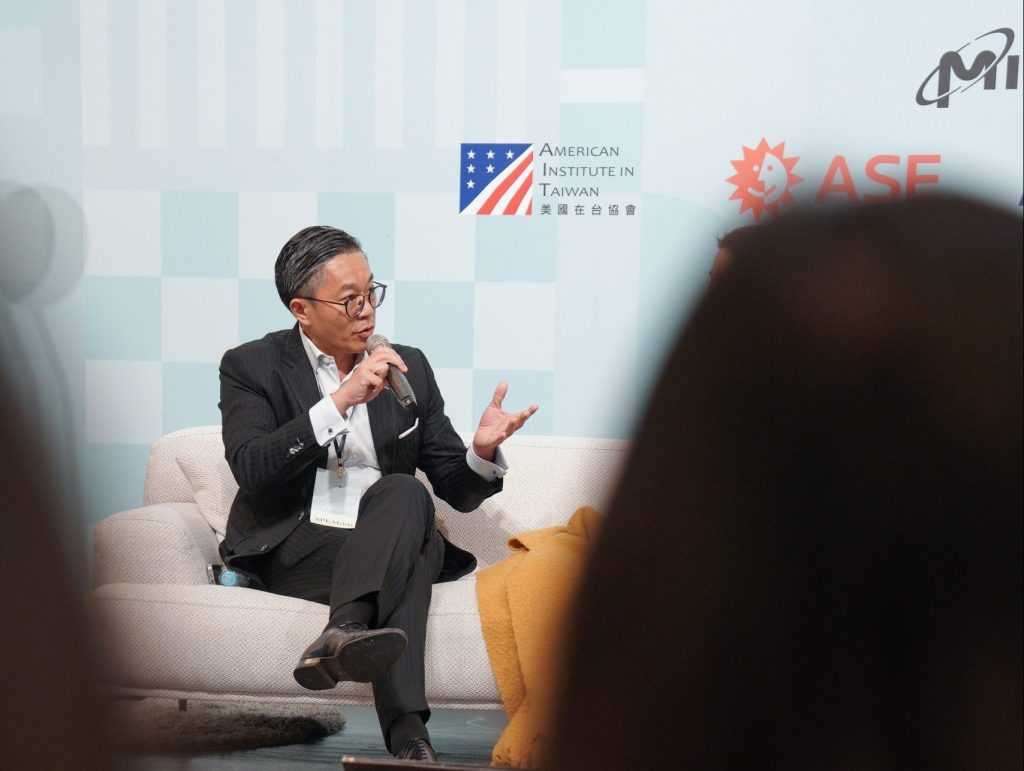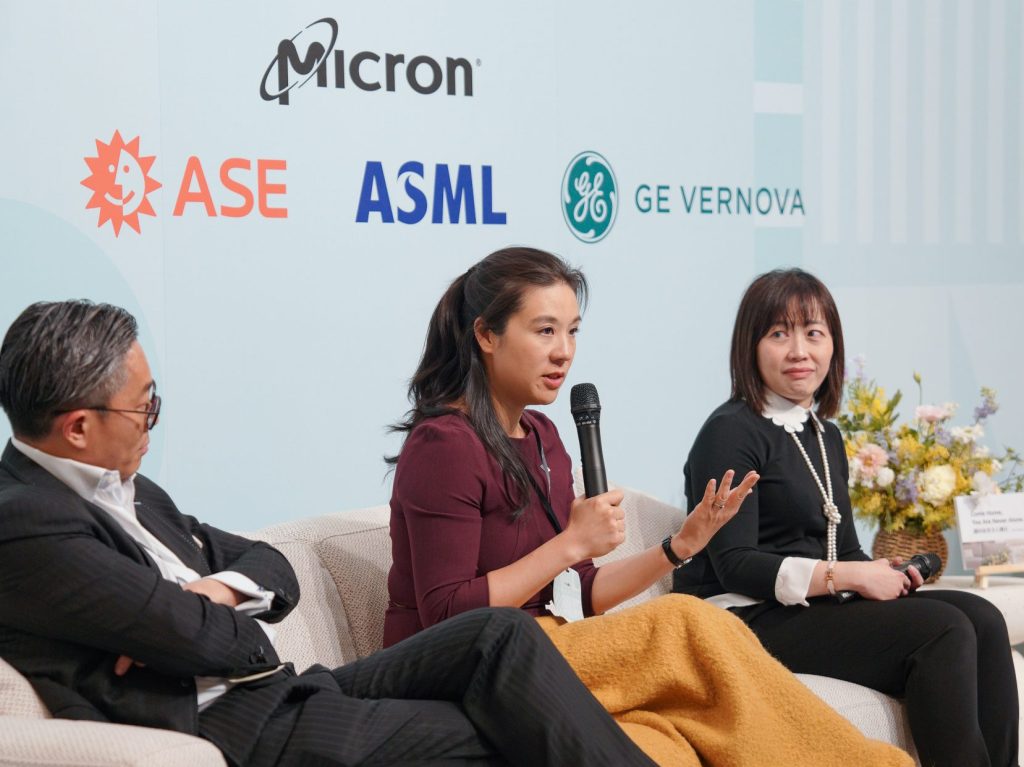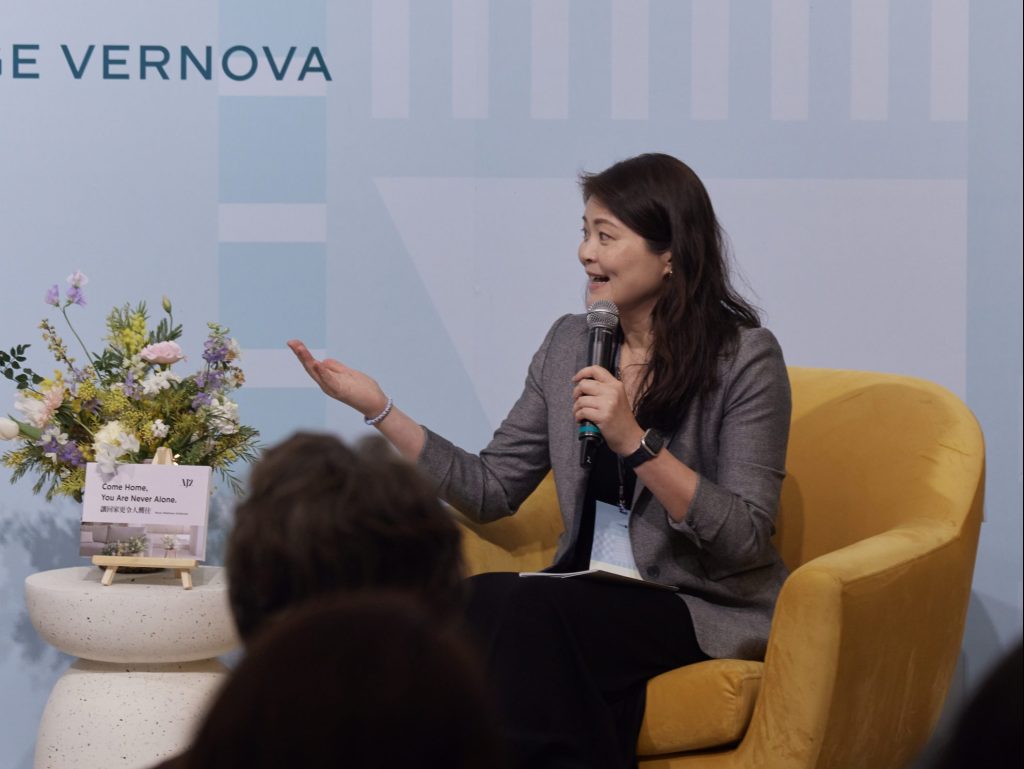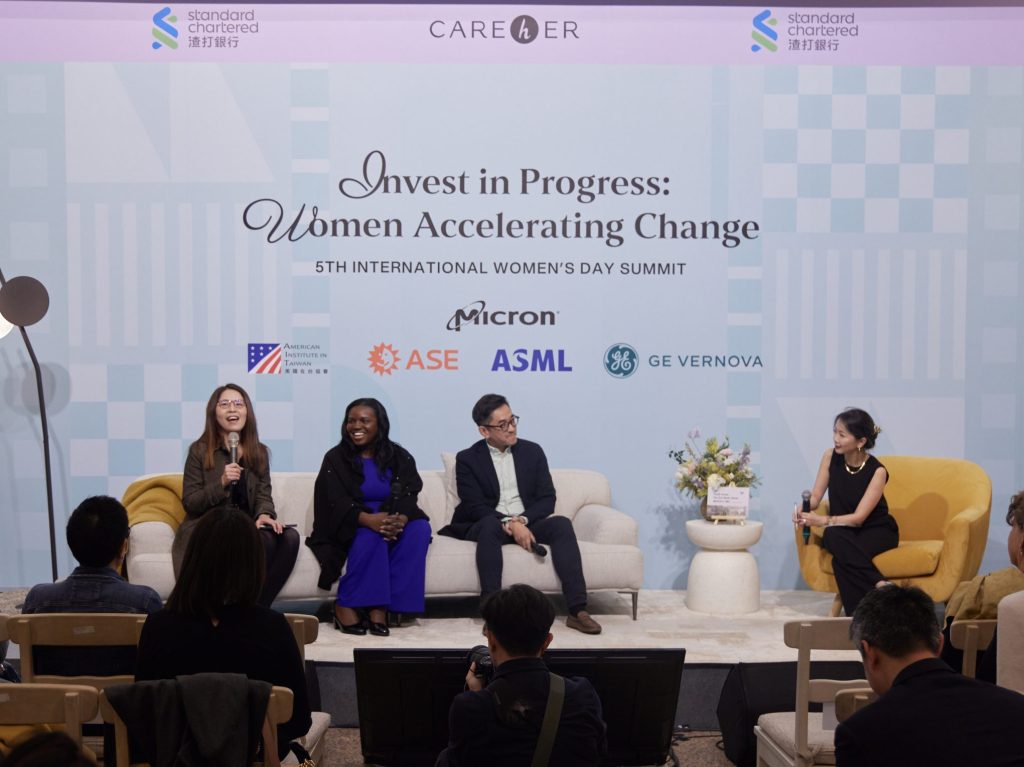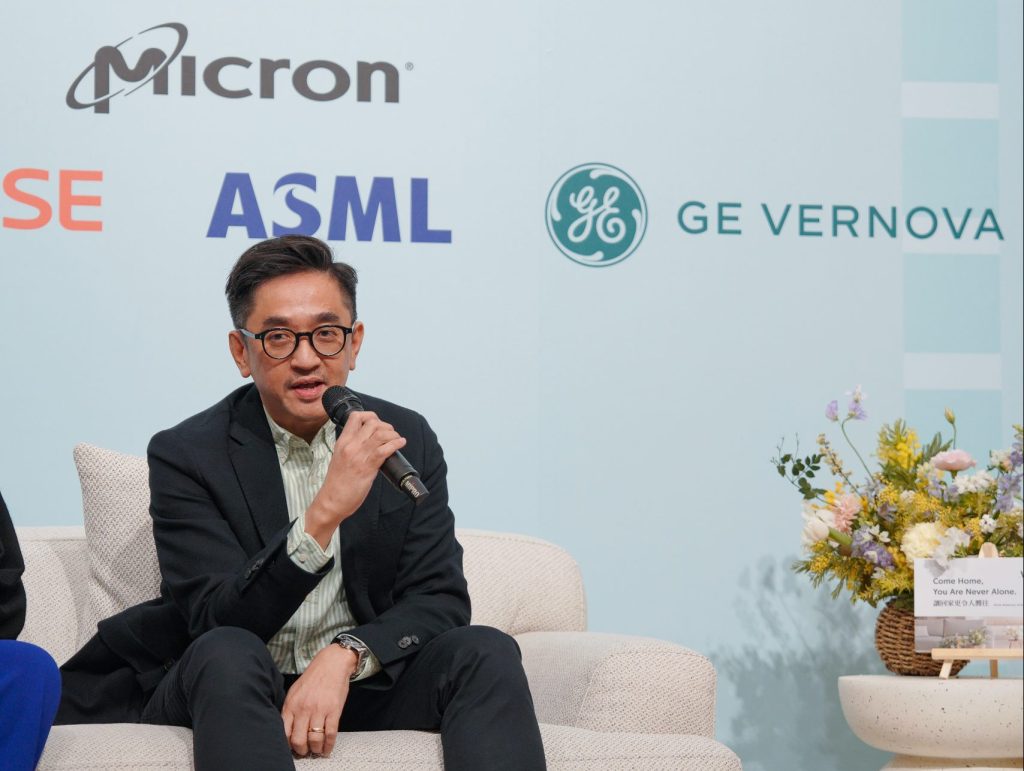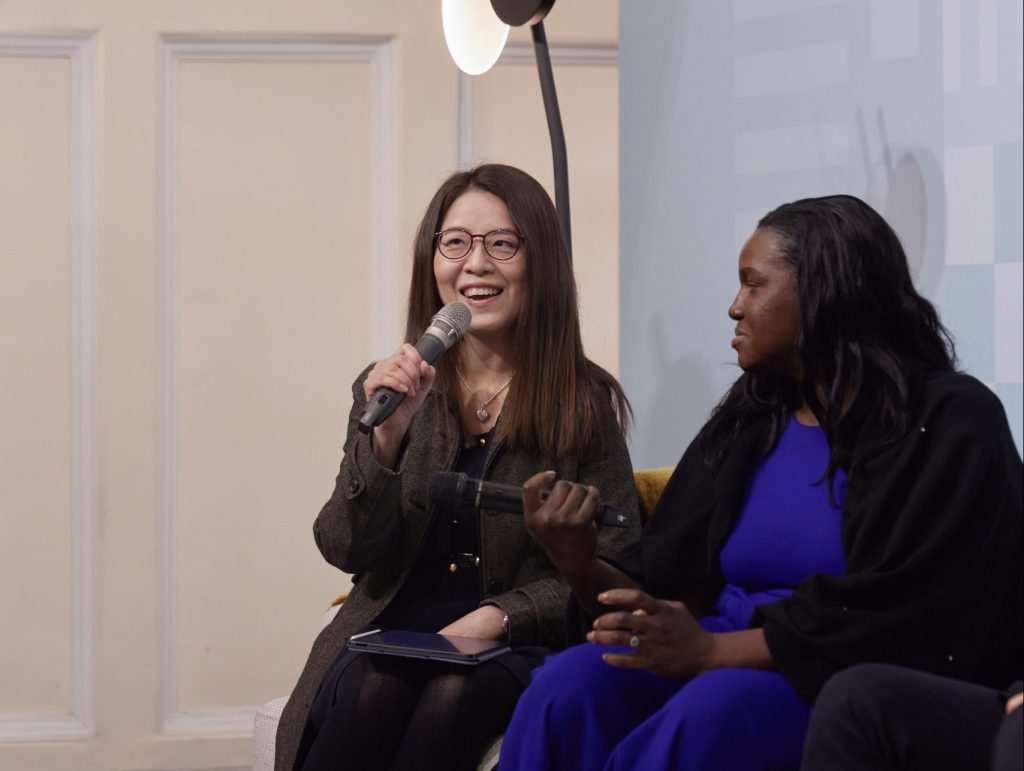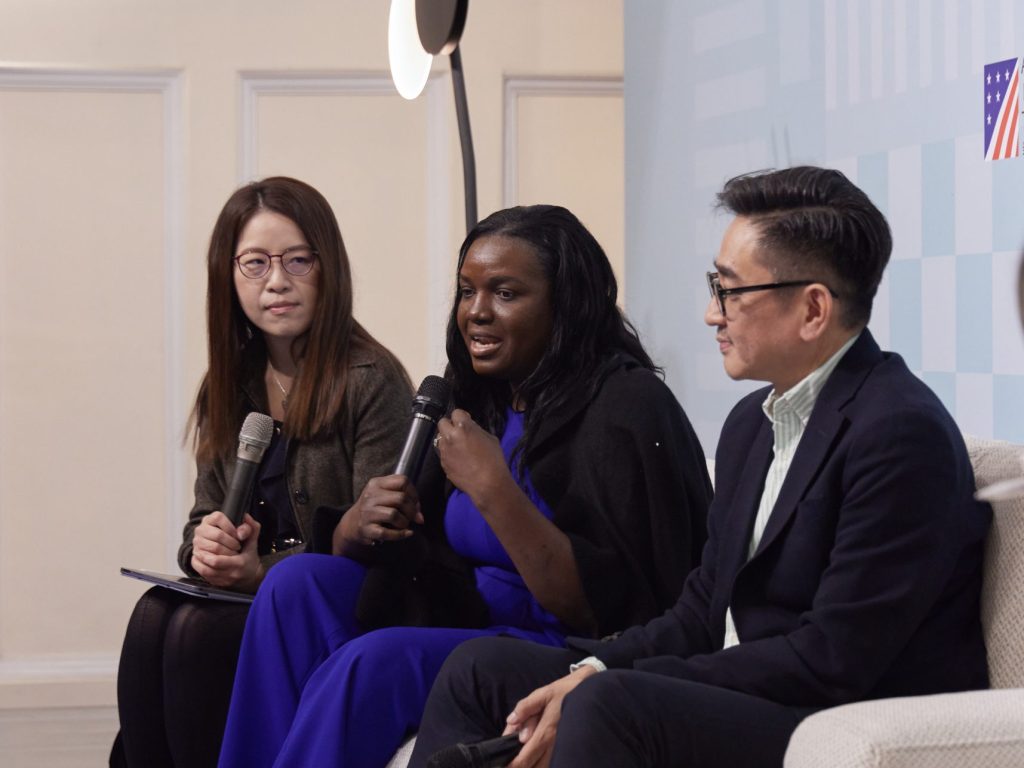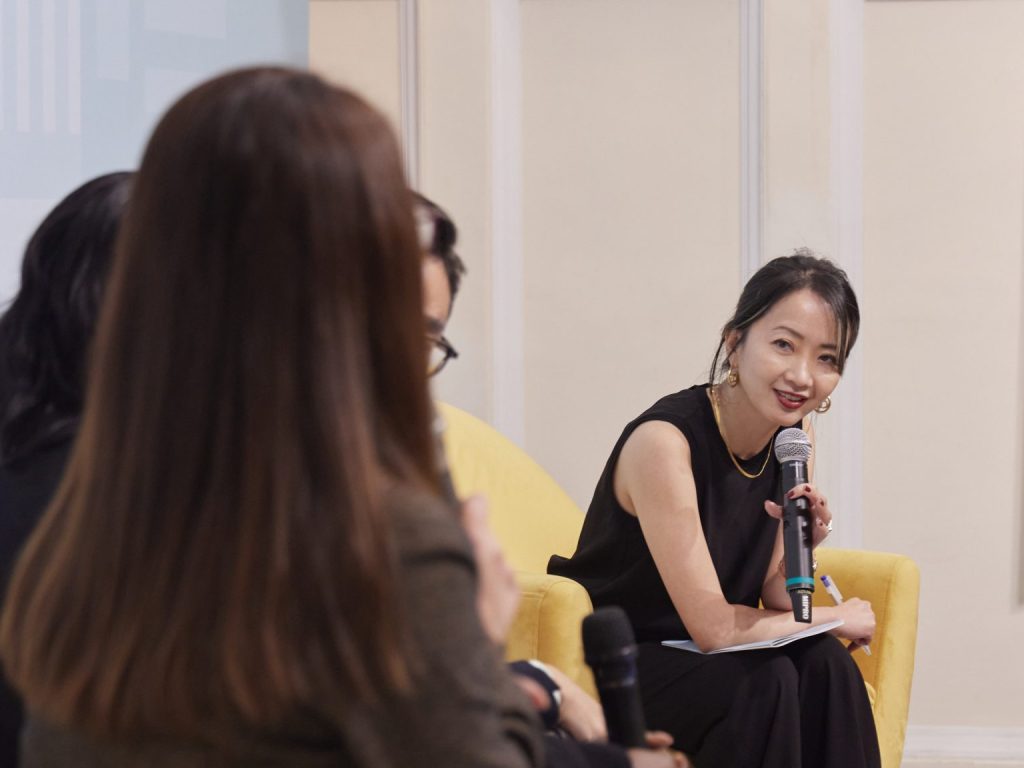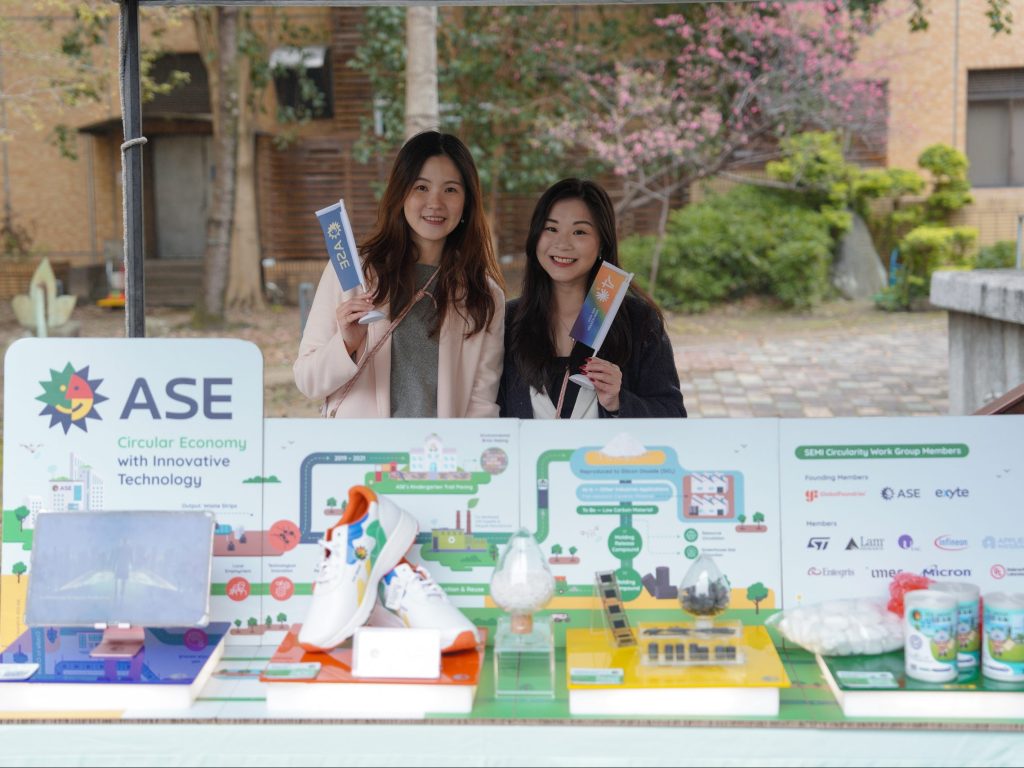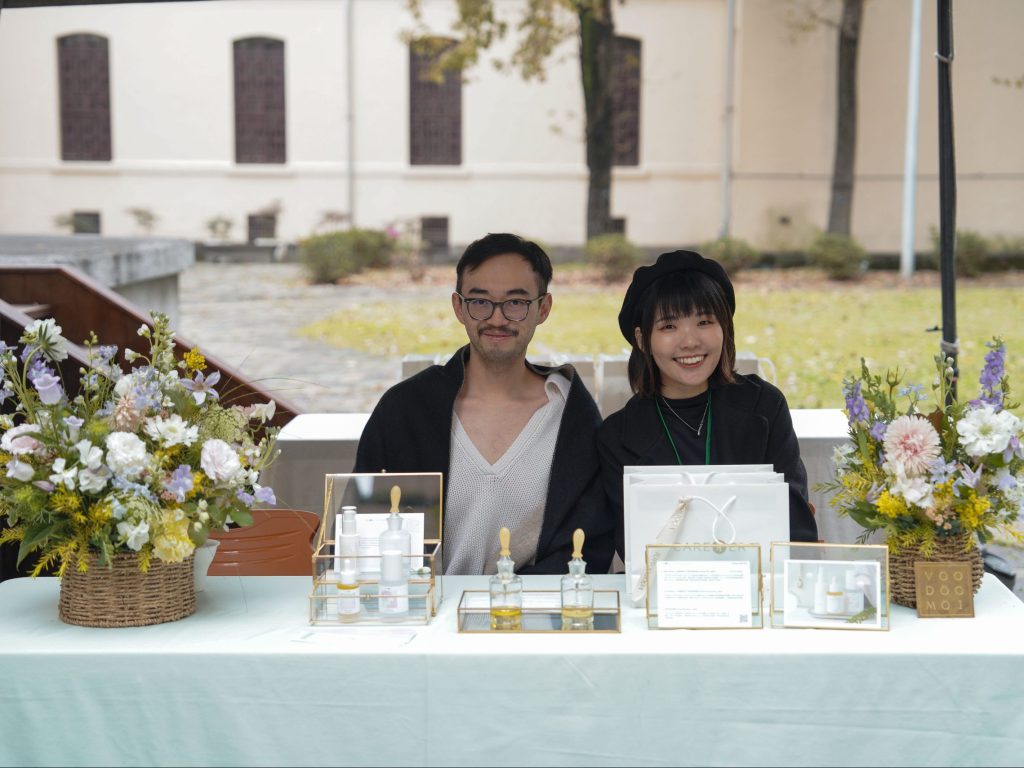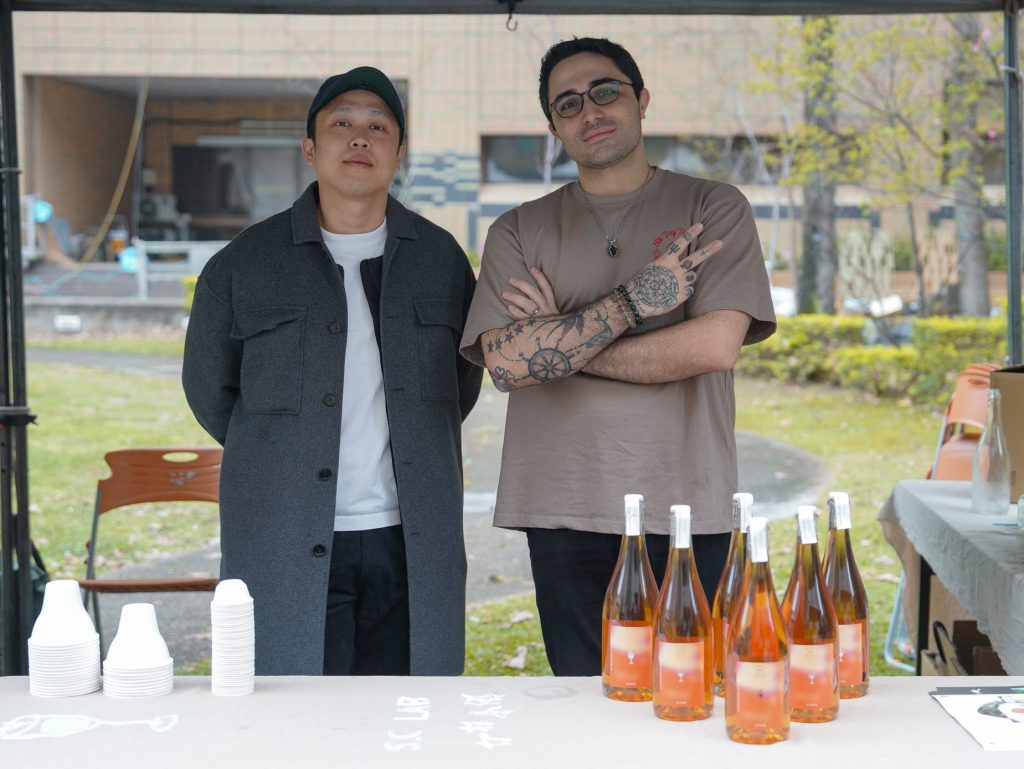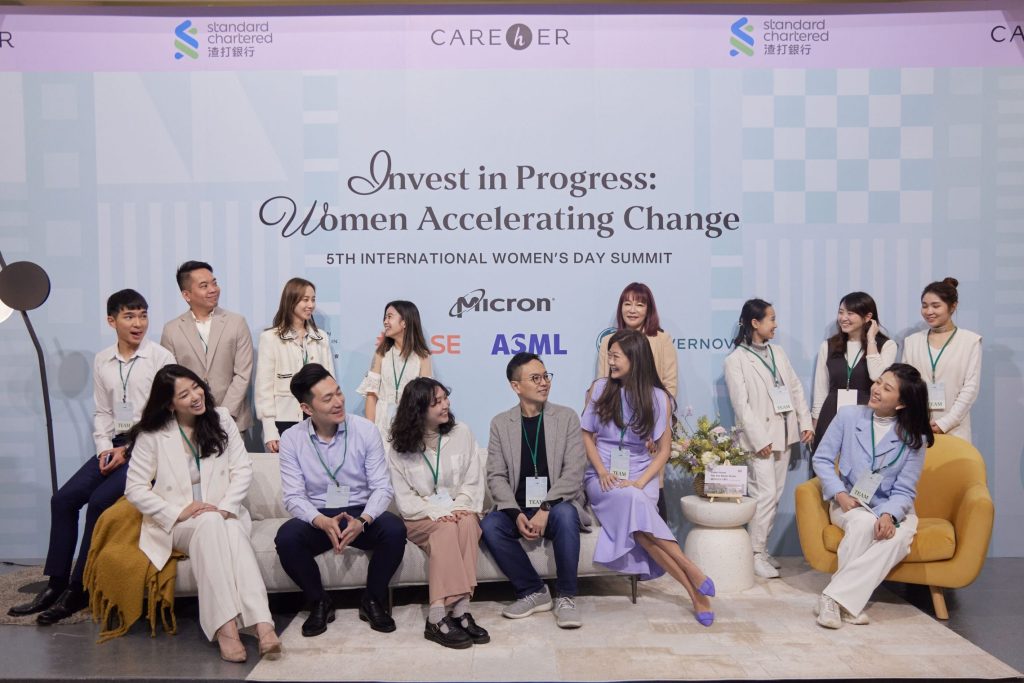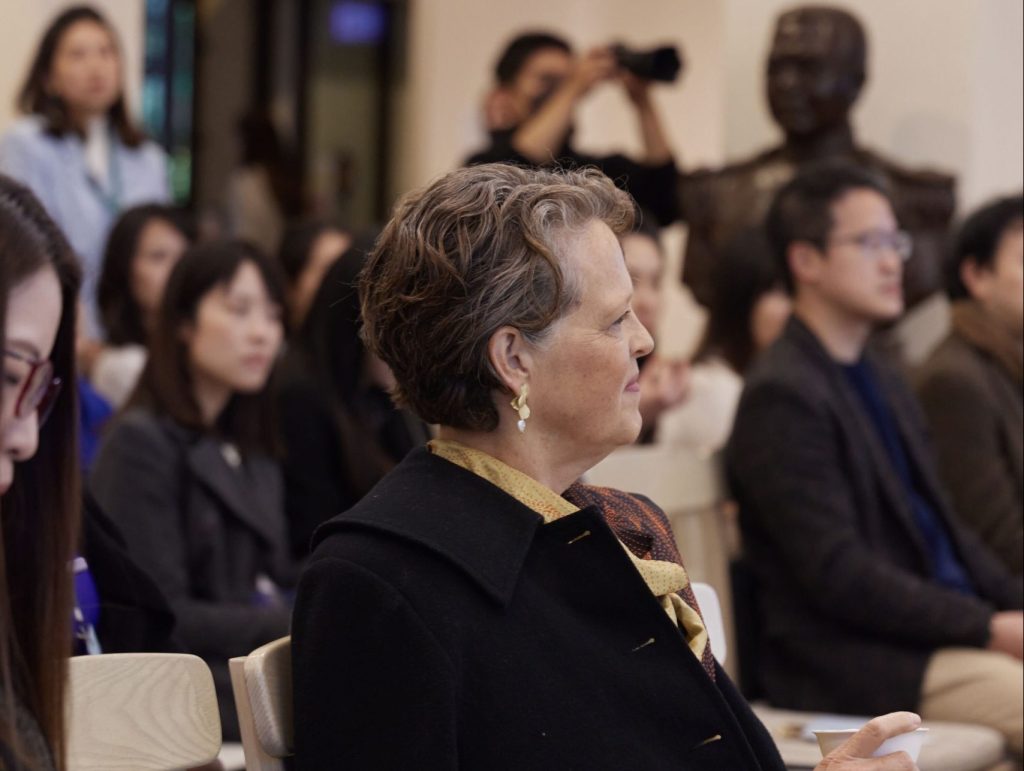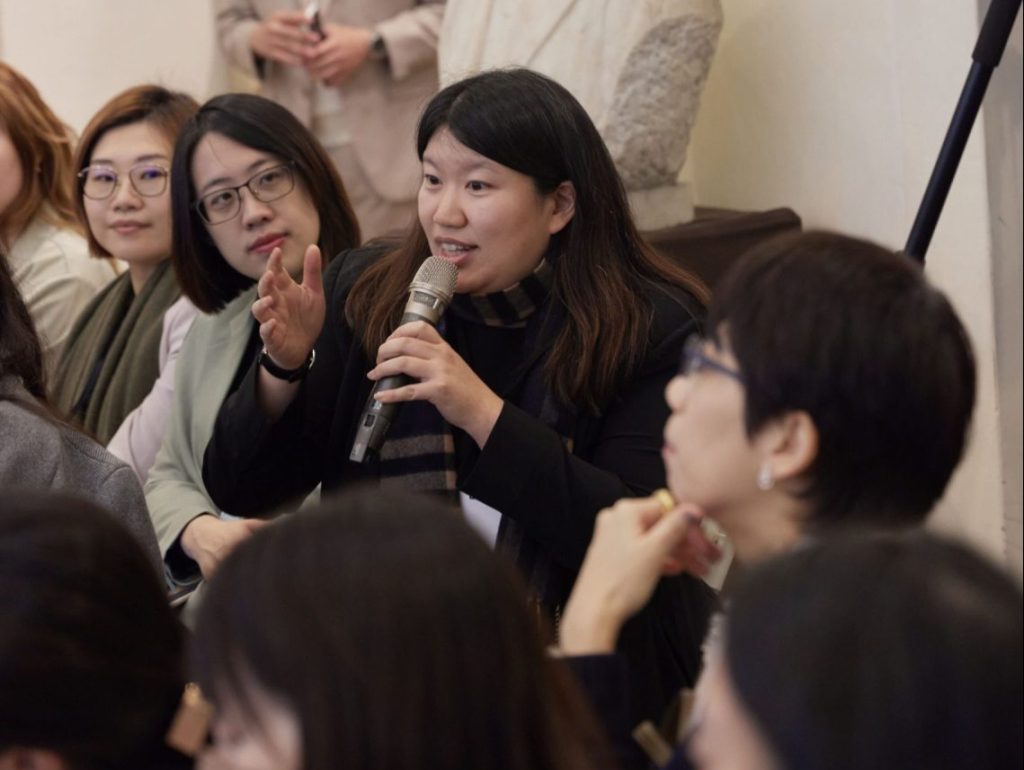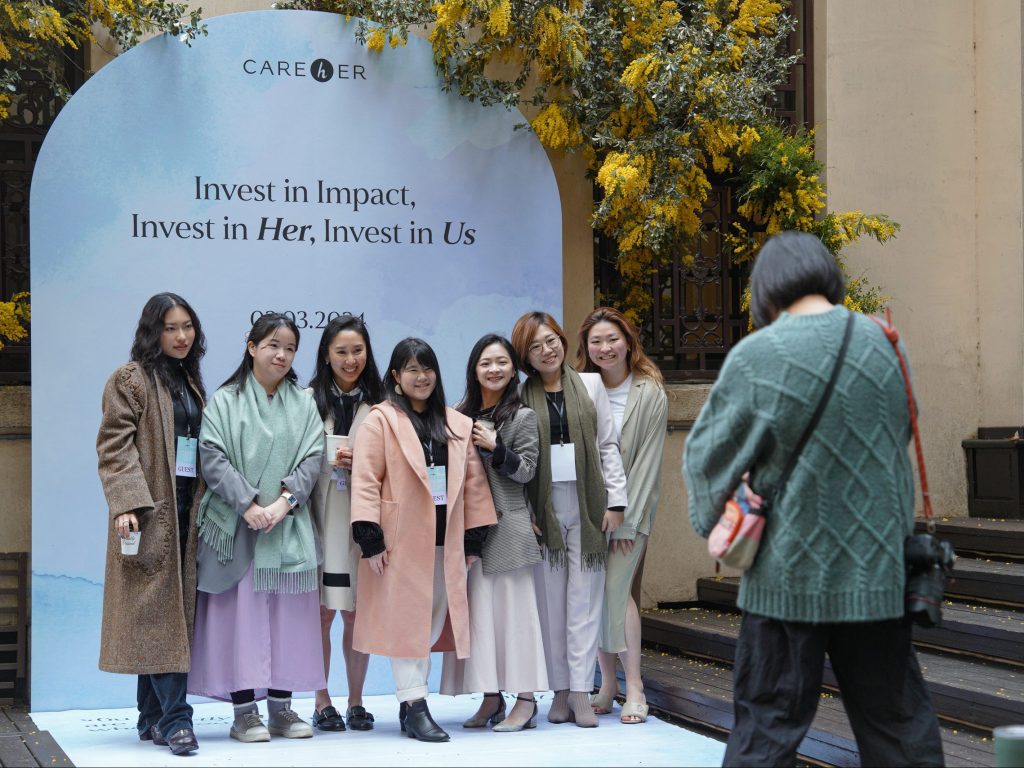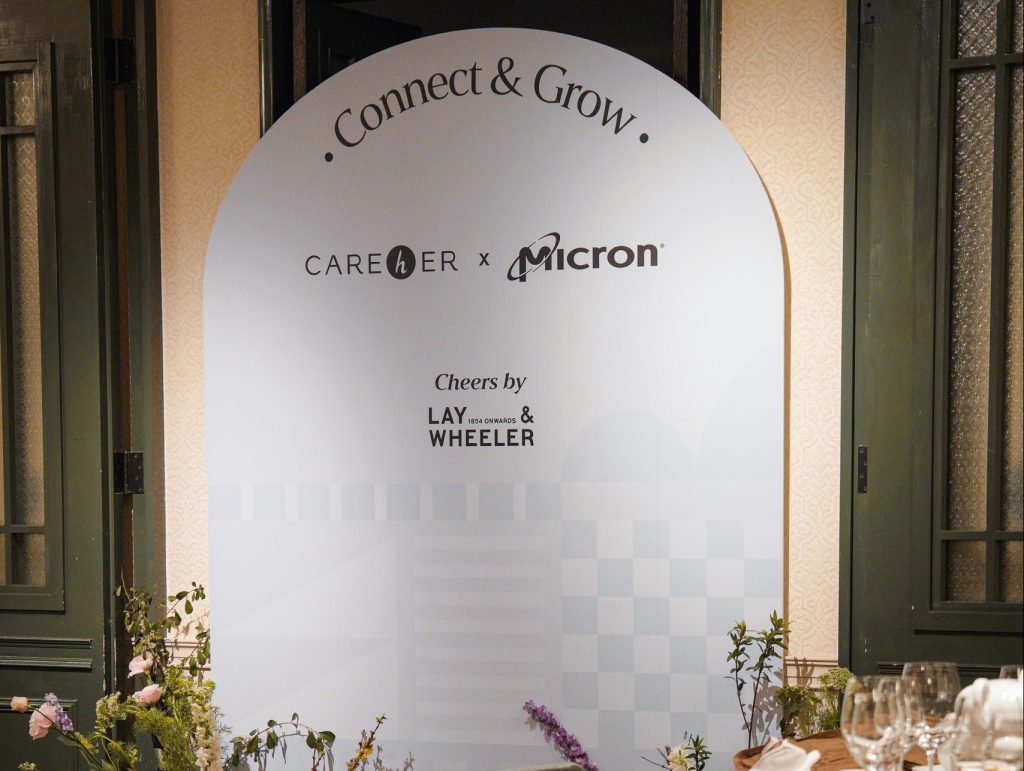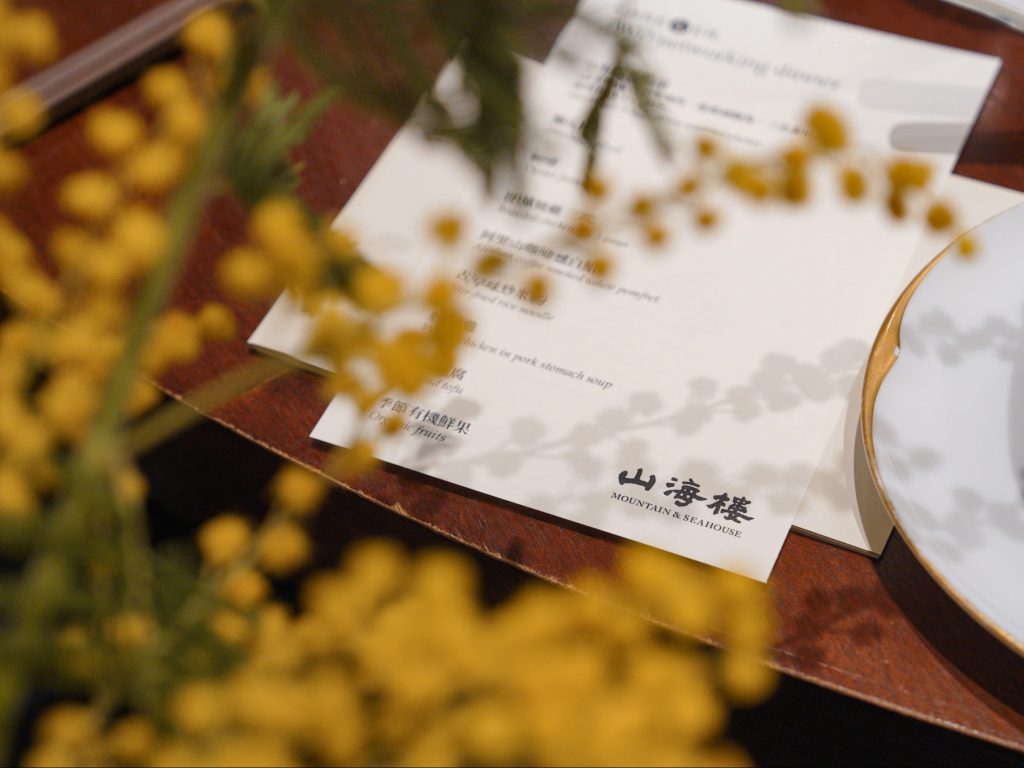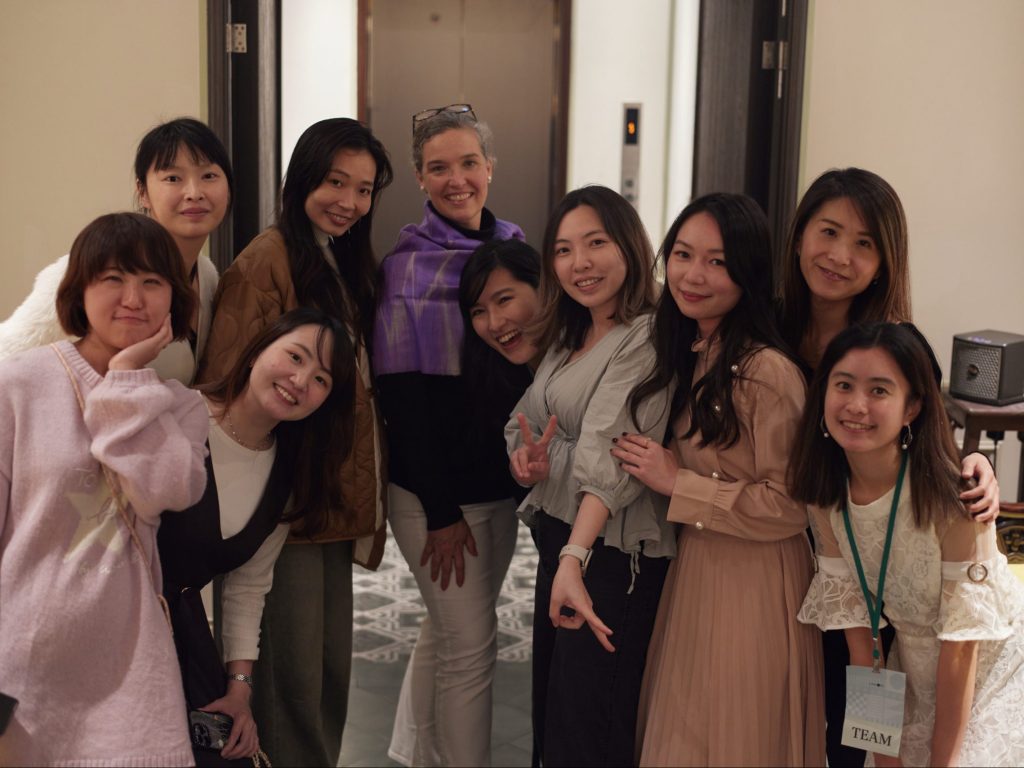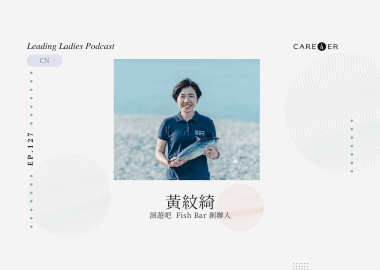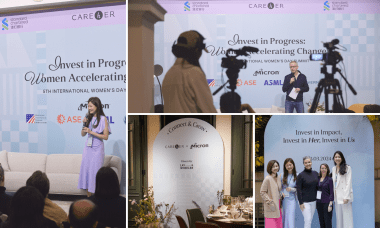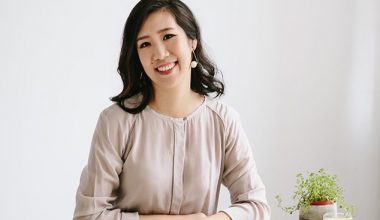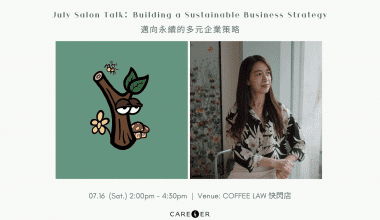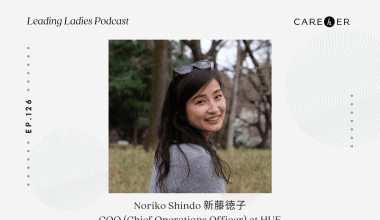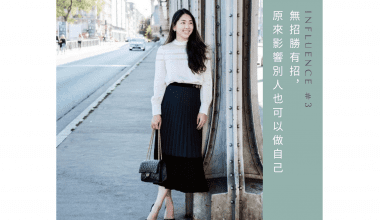【Invest in Progress: Women Accelerating Change】
Through three distinct panel discussions, attendees delved into the realms of talent, technology, and collective prosperity. Thanks to ASE Holdings, the summit reached a wide audience through live streaming, further amplifying its impactful message.
The atmosphere at the summit was fueled by the collective energy of forward-thinking leaders and innovators. As participants engaged in thoughtful dialogues throughout the panel discussions, a palpable sense of community and shared purpose permeated the air. The NTU Museum of Medical Humanities, with its blend of history and modernity, served as the ideal setting for this gathering of minds.
【Equity for Success】
“Prioritizing equity to empower women is incredibly important, and it’s something that should extend beyond the workplace into the communities we operate within,” said Ian Anderson, CEO of Standard Chartered Bank Taiwan, during his keynote remarks. A strong supporter of DEI himself, Anderson stressed that Standard Chartered has seen increased stability and performance under increased female leadership.
Standard Chartered emphasizes equitable pay, benefits for families, and wide support, reflecting a broader commitment to gender equity and diversity beyond mere numbers, he said.
【Panel 1 – Talent | Future of Workplace: DEI in a Hybrid World】
The first panel highlighted the progress and challenges in fostering DEI in a hybrid world, focusing on personal inspirations, the impact of leadership, and the importance of policy and technology in advancing DEI efforts.
If the Foreign Service workforce doesn’t reflect the diversity of a population, it’s not doing its job, said Betsy Shieh, Commercial Section Chief at the American Institute in Taiwan (AIT). In the past decade, the US Foreign Service has worked to increase inclusivity, offering more generous parental leave programs and promoting a workforce that reflects the diverse makeup of the US population.
As a female leader in a traditionally male-dominated occupation, Shieh draws motivation from the women in her immediate surroundings, emphasizing the importance of real-life role models in achieving work-life balance and breaking glass ceilings. “We all face the imposter syndrome,” she reminded the audience. “Throughout my career, I’ve focused on doing my job well, be unabashed about when I slip up, and be proud of my accomplishments.”
Debra Bell of Micron Technology highlighted the transformative influence of inclusive leadership, sharing how her CEO’s commitment to DEI inspired a cultural shift within the company. Bell’s personal journey underscores the value of visibility and self-acceptance in promoting inclusivity and adopting a team-centric mindset.
“Belief in oneself ignites the spark to challenge barriers and create transformative solutions,” she said. “By creating believers among your peers, you can transcend initial rejection and create a narrative of success that proves the power of persistence.”
DEI initiatives need to move beyond the policy level, ensuring that mechanisms that enable effective change are implemented, said Poling Liu, Head of Human Resources Taiwan & Southeast Asia at ASML. Liu discussed ASML’s comprehensive approach to employee well-being, which includes supportive counseling programs, to create an inclusive workplace.
Jennifer Kang, Head of Corporate Affairs, Brand & Marketing at Standard Chartered Bank Taiwan, moderated discussions between these female leaders. Sharing her 16-year journey with Standard Chartered, Kang shared the value of staying in an organization, if it’s “an organization that believes that you can do more, one that gives you opportunities, one that has trained you and cares for you.”
Throughout the discussion, panelists shared their personal experiences and insights on overcoming barriers, the power of mentorship, and the critical role of visibility and advocacy in fostering an inclusive environment. They also explored the potential of AI to enhance DEI efforts by eliminating biases in recruitment and enabling more inclusive communication and problem-solving approaches.
The conversation concluded with a focus on measuring DEI progress, the importance of reflecting on diversity in recruitment, and the need for policies that support not just diversity but true inclusivity and equity.
【Panel 2 – Technology | AI for Sustainability to Craft a Greener Future】
The second panel focused on the integration and challenges of AI across various sectors, emphasizing talent development, sustainability, and responsible AI deployment.
“The output from AI will depend on the datasets we feed the program,” said Ann H. Ku, ESTH Officer at AIT. AI is a powerful human-created tool, and we should work to ensure that we can harness its powers to make a positive impact, she added. To this end, the government’s role is to promote the safe and secure development of generative AI.
JT Hsu, Managing Director and Senior Partner at Boston Consulting Group shared how AI has revolutionized consulting, enabling rapid hypothesis generation and providing detailed presentation feedback. He also touched on the role of AI in achieving sustainability goals, noting the shift toward more accurate carbon footprint measurements and the development of pathways toward net zero emissions.
Sandy Chen, Chief Technology & Operations Officer at Standard Chartered Bank Taiwan, discussed the cautious yet innovative approach to AI adoption in banking. She highlighted a successful AI voice bot project that improved customer service and operational efficiency. Sandy emphasized the need for regular review and human intervention in AI deployment to avoid biases and ensure responsible use.
In a discussion moderated by Youchi Kuo, Co-founder of ALPHA Camp, panelists also addressed challenges, including the need for responsible AI frameworks to maintain trust and manage risks. They agreed on the significance of data quality in AI outcomes and the importance of diversity in AI development.
【Panel 3 – Thrive Together | Investing for Impact: Building a Better Tomorrow】
The third and final panel explored innovative approaches to sustainability, gender diversity in the workplace, and the role of technology in achieving net-zero carbon emissions.
Anne-Marie Padgett, Region President of East Asia and Pacific at Bechtel Group, highlighted initiatives such as developing tools to predict carbon emissions, public-private partnerships for decarbonization and new technologies, and using sustainable equipment to decarbonize the industry.
“The message to everyone is to ‘leave it better than how you found it,’” she said. “Bechtel believes in impact infrastructure – we want to leave communities better than we found them.”
Patrick Kong, CFO, Asia, GE Vernova — Gas Power, discussed the energy trilemma of balancing sustainability, cost-effectiveness, and reliability in energy delivery. GE is committing significant resources to R&D, focusing on making conventional power sources like gas more efficient and investing in renewable energy sources, including wind and modular nuclear reactors.
Daisy Tang, General Manager of Hilti Taiwan, introduced the Three R’s principle — reuse, recycle, reduce — as foundational to their operations. Hilti’s new headquarters is equipped with solar panels and EV chargers, and the company offers programs to encourage eco-friendly practices among employees. Hilti has also implemented a fleet program to manage tool rentals with software to track tools, similar to car-sharing, to help customers reduce wastage.
The discussion also touched on greenwashing concerns, noting the lack of clear definitions around green terms and the need for policy guideline intervention.
“What individuals could do to contribute is read up on policies and communicating with their local elected politicians,” said discussion moderator Gwenyth Wang Reeves, Engagement Director at GE Vernova Taiwan. “For policymakers to make the best possible decisions when it comes to energy planning, we will need collective wisdom and committed efforts.”
The panelists shared their companies’ strategies on increasing female participation in the workforce, emphasizing the importance of entry-level recruitment, supportive programs for women, and adjustments for pregnant employees.
【Making Future Connections】
Between panel discussions, participants were treated to a fair featuring sweet treats from Heritage Bakery & Cafe, sparkling wine and tea liquor from local distiller S.C Lab, CAREhER travel essentials, and an exhibit by ASE Holdings.
【Networking Dinner】


To round up the day, CAREhER members and friends gathered at Mountain & Sea House Restaurant for dinner and wine to deepen new and old connections. The inspiring stories shared around the tables were a testament to the power of collective action and the unyielding spirit of women leading the charge toward a more inclusive, sustainable future.
成為會員
CAREhER Experience 用自在知性的形式,讓妳能近距離認識講者以及跨領域跨城市,思想相近的女性領導者,更有可能成為未來共同合作的人脈, 一同互相支持、共學、彼此成長。
